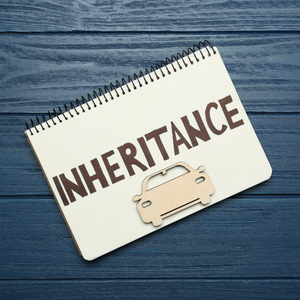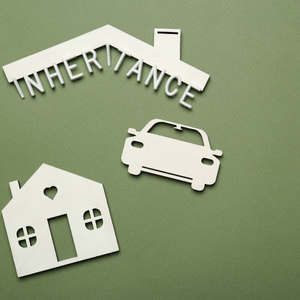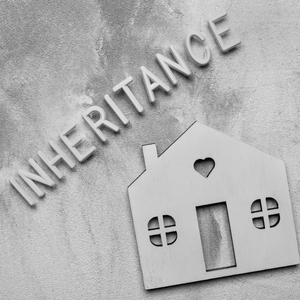
Inheriting a house alongside a sibling presents both challenges and opportunities, as it requires special attention to how property and inheritance are handled in North Carolina. This guide aims to understand the intricacies involved in co-ownership of an inherited property with a focus on the legal issues, finances, and, more specifically, the emotions involved in a sibling relationship. This holds true, whether you are thinking of selling the property, renting it, or even managing it. Cardinal Home Buyers can help you navigate these decisions with professional guidance. Standing discord in the family and optimizing an asset’s value rest on the proper understanding of the options available. Undertake steps that would enable you to make rational and sensible choices so that inherited property would not become the cause of discontent, but family prosperity. Together, let us examine Raleigh.
Key Highlights
- Inheriting property in North Carolina involves legal and emotional challenges, requiring an understanding of state-specific laws and family dynamics.
- Probate ensures fair estate distribution, with the court validating wills and addressing debts and taxes.
- North Carolina abolished the estate tax in 2013, but heirs must understand federal estate and potential capital gains taxes.
- Communication and conflict resolution are key when negotiating property decisions with siblings.
- Selling inherited property involves legal, financial, and emotional considerations, requiring cooperation and strategic planning.
Understanding Inherited Property in North Carolina

As the state of North Carolina has its own laws governing property inherited in the state, it is prudent to understand the laws in order to bypass legal challenges as well as estate value optimization. Everything from legal phrases to regrettable sibling arguments contributes to the puzzling territory of property ownership during a sibling’s death. All the aforementioned factors ease the anxiety for the siblings during inheritance, as they know what is fair for all succeeding kins regarding property division or shared ownership.
Legal Definition of Inherited Property
Regarding death, Inherited property is one of the assets that is real estate, monetary equities, and other tangible assets. In the course of real estate transactions, the demise of an owner is normally articulated in a will, and assets are divided among the heirs. In the state of North Carolina, Inherited property is referred to real estate In the state of North Carolina Inherited property is referred to real estate. In most cases, siblings are heirs. However, conflicts tend to occur in cases where there are several heirs. This is where understanding how division of property is done, especially in a situation where there is a phrase that states Inherit half, becomes critical. The estate is proactively subject to the regulative and legislative standards of the particular state. This aids in the estate and also lowers the burden on the estate planner and executor of the estate.
Disagreements arise the moment the siblings are instructed to work together on a particular project, and there is a misaligned communication surrounding the sharing of duties. More often than not, the most prudent course of action is for the siblings to approach and seek legal counsel in order to avoid and successfully resolve the dispute. This is most especially the case when juggling legal rights and duties. This is done on the proactive measures where the preventative action is legal, and legal matters surrounding inherent matters are easily navigated.
Common Challenges Faced by Siblings
North Carolina siblings inheriting a house may have to face several conflicts and challenges. Decisions on the house would also include a keep, sell, and rent option, and the siblings may have differing preferences or even financial situations, along with the debt and maintenance costs. There may even be a conflict due to a sentimental bond to the house or logistical issues like distance, where some siblings’ relatives live far away. All parties involved in the house would have to be given the assertive, more appropriate, and favorable options to minimize conflict through ‘open communication’.
Proposed advanced conflict resolution mechanisms include family mediators, lawyers, and counselors, as suggested in inherited family agreements. Siblings or co-owners for a house may divide the house on roles or list in an orderly manner the rights and responsibilities. Ohio family property laws would be more amicably approached if family lawyers are hired.
Navigating Estate and Probate Processes in Raleigh NC
Handling the inheritance of a house with siblings, especially in Raleigh, NC, comes with the imposition of tackles such as the estate distribution policies and the County courts’ domain. Capably adjudicating these policies is tantamount to effecting a seamless succession of ownership. This includes a fair share of the costs of direct participation in the debt recovery and estate administration. The costs that these siblings incur, with notional due diligence and keen fiscal management, are optimally favorable. There exists a wealth of information and knowledge about, as well as the costs and engagements that come with, estate procedures willingly available, allowing heir masters to form a reasonable action plan.
| Probate Steps | Financial Implications | Emotional Considerations | Strategies for Heirs |
|---|---|---|---|
| • Filing the will • Appointing an executor • Inventory of assets • Settling debts and taxes • Distribution of assets | • Probate fees • Property taxes • Legal costs • Maintenance expenses | • Family disputes • Grieving process • Complex family dynamics • Stress management | • Hiring a mediator • Open family communication • Professional financial advice • Exploring selling or renting options |
This table provides a concise overview of the estate and probate landscape, guiding heirs through both the procedural and personal aspects of inheritance.
What to Expect During Probate
One of the steps necessary to fulfill the terms of a will is the probate process, which is a legal requirement in North Carolina and is a means to ascertain that the heirs are given their rightful property. When someone dies, the estate is said to be probated, which means that the will is validated and the rest of the estate is administered and passed to the rightful heirs. The probate process is initiated by the submission of the will to the probate court. The court will supervise the estate to ascertain that the validation, settlement of debts, and compliance with estate laws in North Carolina have been followed. The estate administrators dispose of the property as they require, while the executors fund the estate through taxes and ongoing maintenance. It is important for the siblings to understand their responsibilities during probate in order to improve the property division process, allowing for a more equitable division of property.
Having an inherited property in Raleigh seems easy, but it can turn into a hassle unless one is well-versed in inheritance laws. There are estate types with different complexities. When it comes to siblings, it is not limited to determining the outstanding mortgage obligations, but also includes identifying the estate’s current market value as well. In addition to that, if disputes ever occur between siblings, the probate court steps in to make sure the disputes are resolved fairly. Heirs are better prepared if they understand that the process can take a few months up to a year, but that heavily depends on the complexity of the estate. If there are complex legal matters still to be settled, the probate court makes sure all the steps are completed, thereby closing the estate of the deceased. Understanding the complexities of probate ensures the smoothest possible passage for an heir.
Common Costs and Considerations in Raleigh NC
The act of inheriting property in North Carolina is consequential in terms of its financial aspect. Such costs as court costs, an executor’s fee, legal fees, taxes, which could include property taxes, and any additional costs that may be unique to these siblings are all expenses that require prudent planning and budgeting. The legal subdivisions of property and its partitioning, which in this case is presumed to be done in case of agreement, and additional legal fees could ensue as the process of partitioning, in case an agreement is arrived at. The maintenance of the estate, considering the unique and current property market value, alongside many other features, is significant to financial consideration and decision-making.
In considering the financial impact of maintaining the estate to be inherited, siblings need to decide whether to include property taxes, maintenance costs, and ongoing mortgage expenses. It may also be prudent to assume that estate expenses would be worked out and resolved for in future planning, as it’s the legal responsibility of the inheritors in case the estate includes the mortgage obligation. The financial and estate planner needed would also explore issues of taxes, estate taxes, federal taxes which could be applicable and any other obedient taxes that could be taxes to list.
Further, it is usually the case that emotional and financial aspects of the deal are interrelated; family residences have memories attached to them that could sway decisions. It is the duty of heirs to balance the emotional gain of possessing the home against the financial costs of ownership, and the decision to keep or sell the home is often emotional rather than financial. Providing clarity to siblings regarding the internal and external finances helps to make constructive decisions. Cooperative discussions regarding the future of the property, planned changes to the estate, or prospects of sale, including the option to sell your home for cash in Raleigh or nearby cities, are all tempered by helping the siblings as they work toward harmony to promote the probate process. Dealing with the common costs and the considerations enables siblings to work toward resolving the financial issues presented by the inheritance, especially where emotions have overtaken rational decision-making.
Tax Implications of Inheriting a House in Raleigh NC

The impact on an heir’s finances after inheriting a house in Raleigh, North Carolina, especially concerning taxation, can be substantial. What are the tax obligations on the house in question, and how do they affect the smooth transfer of ownership? North Carolina does not impose a state estate tax, but heirs may still face a federal estate tax or capital gains tax on the property in the future. Perhaps, understanding such rules is essential for preparing heirs during such instances.
Concerning tax codes, heirs can also obtain vesting strategies so that the property is bundled with an investment vehicle. Heirs can also maintain a property appraisal and detailed financial records and work with tax advisors. all of which are steps that ensure legal requirements are met to reduce the financial burden. Heirs can reduce the tax burden and inheritance taxation, but above all, heirs owe themselves to financial and legal planning that will ease the capture of an inheritance.
Understanding the Estate Tax in North Carolina
As there is no estate tax in North Carolina, heirs do not owe any estate tax. This is a consequence of the abolition of the estate tax in 2013. Heirs, however, may face estate tax on exceedingly large estates if the federal exemption limit is crossed. Most heirs do not need to worry about this, but it is critical to recognize the difference between state and federal tax law to avoid confusion.
Heirs also have to pay capital gains tax when selling the inherited property, which is true even if the state does not impose an estate tax. Due to the “step-up in basis,” the value of the house is set to the market value when inherited, which normally decreases the value that can be taxed. Heirs can consult financial and tax experts to take advantage of this step, in order to minimize estate tax liability and have inherited property controlled in a fiscally efficient manner. One practical option is to sell your home for cash in Garner or nearby cities, which can simplify the process and help heirs avoid ongoing financial burdens tied to the property.
Financial Strategies for Heirs
Like many regions, Raleigh, North Carolina, offers property heirs numerous financial planning opportunities on which they can hone their skills. Though the state does not impose an estate tax, certain obligations, such as insurance, property taxes, and upkeep, still exist. If the property in question has an existing mortgage, determining the best course of action — paying it off, refinancing, or making regular payments — can be challenging, as each results in vastly different outcomes. Tailoring a plan that factors in renting the property as a means of offsetting regularly occurring expenses, while balancing the property as a long-term value appreciating investment, is a novel approach. This situation serves as an ideal scenario to consult financial advisors and property managers.
Heirs can also take advantage of the Raleigh property market; however, they must be aware of the possible outcomes of selling the property since cost and investment return utilization will be deployed. With the help of a local realtor, they will be able to easily find the ideal market conditions that will maximize profit on the property. Once sold, exploring tax-efficient ways to invest the proceeds – such as retirement accounts, diversified investments, or other real estate – can help heirs strengthen their financial future. By tailoring a structured approach towards the money received along with the debt, heirs can take advantage of the property market in Raleigh while also planning for the future. With the help of a realtor, they will easily find the best timing to maximize their profit. Seeking professional advice will help in protecting the value of the property while also minimizing financial burdens. This will ultimately result in decisions that benefit all, including future generations.
Selling an Inherited Property with a Sibling in Raleigh NC
Dividing an inherited property for sale with a sibling, especially in the state of North Carolina, can be difficult because it involves not only legal considerations but also family matters. Transparency is critical, more so in finances such as mortgages, taxes, and maintenance. Each sibling must set boundaries and lend their effort in the sale process to be able to reduce possible disputes.
Collaboration is critical in any venture, including selling a property. Each person must devise a shared strategy and a predetermined method for making critical decisions. Work out a set schedule and an agreed-upon way to carve out the earnings. Siblings can ensure balance for all parties involved as long as there is effort in discipline and a strategy devised for the sale process.
Steps to Sell Inherited Real Estate
When selling an inherited house in Raleigh, NC, the initial task is to clarify the ownership structure and confirm that all heirs are legally recognized. This involves changing the property title to probate court so that a legal transfer of ownership is clear and complies with the North Carolina property law. The heirs are then able to sell the property without facing legal complications, assuming all title conditions are satisfied.
The next phase involves getting a qualified appraisal to determine a realistic home value. This assists in developing an accurate picture of the property’s worth and setting an asking price. If the house is subject to an outstanding mortgage, that is yet another consideration that should be addressed in the selling strategy. A real estate agent with experience in the Raleigh area is able to provide invaluable assistance. This includes proprietary information about property trends, helping the owner to prepare the house for sale, and targeting the proper audience, among others.
Both marketing and negotiations hold significant value. In Raleigh’s competitive marketplace, marketing all available listings coupled with hosting open houses for prospective buyers can significantly enhance market visibility. In this case, the benefits are more easily attainable if the heirs coordinate and make decisions collectively, rather than allowing differences to arise, which may lead to conflicting objectives. Upon the receipt of the offer, the closing stage, which encompasses documentation along with the repayment of the outstanding mortgage and compliance with other legal formalities, begins. More often than not, specialists are paid to perform the legal closing, which requires all of the specialized compliance and documentation mentioned before. Timely execution of the closing documents allows all the parties to maintain their representational value. If siblings plan all marketing activities and cooperate, then the success of the sale will be evenly distributed, which enhances the value of all of the involved parties.
Negotiating With Your Sibling

Discussion about the selling of a shared property with a sibling can be emotional as well as practical. Family homes often serve a sentimental purpose; therefore, unlike a typical real estate transaction, the dealings might be more sensitive. Gentle negotiation with all siblings about their concerns, desires, and ambitions regarding the sale should be the starting point. Starting with fairness and mutual respect ensures a balanced outcome and a harmonious atmosphere, and sets a cooperative ambiance for the negotiations so that every outcome feels fair and every decision feels balanced.
After these preliminary discussions, the siblings need to reach an agreement on major objectives regarding the property. Maybe there are some who are comfortable with selling the property this month in order to split the assets, and there are others who prefer to wait in order to maximize their profit. Clarifying the financial position of the others serves a major purpose. Once the financial situations are agreed on, the tension and restlessness are lowered. Assigning responsibilities to individuals, such as who prepares the legal agreements, closes the deals with realtors, takes care of the property, assists in reducing chaos, and improves outcomes.
Outside assistance may become necessary. Mediators, estate planners, and legal consultants may help siblings arrive at equitable solutions. The estate may also be resolved as bought out or sold jointly controlled, which may be less costly than legal solutions. Although partition action may be brought to the court, it is advisable to reserve it as the final option. By shifting the focus to the actual worth of the property, future objectives, and treasured moments, siblings can foster a healthier approach to negotiation and counteract possible strains on the social ties and family estate.
Do you need to sell an inherited house with a sibling? Whether you want to sell quickly, avoid costly repairs, or prefer a hassle-free sale, Cardinal Home Buyers is here to help. We offer fair cash offers, handle all the details, and make the process seamless. Ready to sell or have questions? Contact us at (919) 609-5173 for a no-obligation offer. Get started today!
Helpful Raleigh Blog Articles
- Inheriting an Inherited House with Sibling in Raleigh, NC
- What Is the Average Cost to Sell a House in Raleigh, NC?
- How Long After an Appraisal Can You Close in Raleigh, NC?
- Selling a House with Foundation Issues in Raleigh, NC
- Can You Put a Lien on a House in Raleigh, NC
- Selling a Home that Needs Repairs in Raleigh, NC
- Can I Sell My House Below Market Value in Raleigh, NC
- Is Raleigh, NC Safe?
- Raleigh, NC Neighborhood Map
- Raleigh, NC Property Tax Rate
- Closing Costs Calculator in Raleigh, NC
- Understanding Expenses in Raleigh, NC
- Discover 40 Free Things to Do in Raleigh, NC
- Tips for Selling Your Raleigh Investment Property in NC

